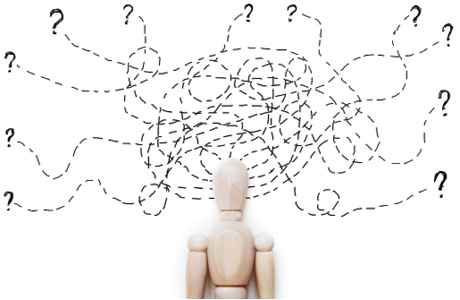At PsychLaw.net we teach that encouraging client expressions of frustration and anger potentially taints their memories via the mood‑congruent memory effect. The relevant research demonstrates that induced mood significantly influences how people think about themselves and their life situations.[1] , [2], [3] Simply thinking about a sad event leads to significant increases in depression and anxiety.[4] Inducing a sad mood also increases the anticipation of negative events.[5] Furthermore, these mood‑induced outcomes can influence the recall of past events.
Depression, for example, increases the probability of remembering parental figures as rejecting and relying on negative controls.[6] This effect, however, promptly disappears as the level of depression diminishes. We at PsychLaw.net find that quite clearly, then, encouraging harassment plaintiffs to engage in cathartic expressions of anger can influence their memories. These practices increase the likelihood of plaintiffs recalling the defendant’s conduct in terms congruent with their therapeutically induced mood. Mood influenced memory can then recall a defendant’s conduct in more exaggerated and extreme terms.
Cross‑Examining the Mood‑Congruent Memory Effect
- In the course of treatment with this plaintiff, you encouraged her to express her feelings of anger and frustration ‑‑ Correct?
- And you specifically encouraged the plaintiff to express her feelings of anger and frustration related to the defendant ‑‑ Correct?
- You are familiar with the term “mood‑congruent memory effect” ‑‑ Correct?
- The Journal of Systemic Therapies is a generally recognized and accepted, peer‑reviewed journal in your field ‑‑ Correct?
- And Campbell’s 1996 article – “Systemic Therapies and Basic Research” – might be relevant to your opinions in this case ‑‑ Correct?
- Please consider Campbell’s definition of the mood‑congruent memory effect found in his 1996 article:
– [ read ] –
“Laboratory research examining mood‑congruent memory effects has demonstrated that induced mood states significantly influence cognitive processes.”
Now my question: You accept this definition of the mood‑congruent memory effect ‑‑ Correct?
- If induced mood states significantly influence cognitive processes, then memory is one of the cognitive processes that can be influenced ‑‑ Correct?
- The Journal of Personality and Social Psychology is a generally recognized and accepted, peer‑reviewed journal in your field ‑‑ Correct?
- And a 1987 study by Lewinsohn and Rosenbaum published in the Journal of Personality and Social Psychology ‑ titled “Recall of Parental Behavior by Acute Depressives, Remitted Depressives, and Nondepressives” ‑ might be relevant to your opinions in this case ‑‑ Correct?
- Please make the following two assumptions: (1) Lewinsohn and Rosenbaum found that depressed people remember their parents as rejecting and relying on negative controls. (2) When their depression alleviates, however, these same people no longer remember their parents as rejecting and relying on negative controls.
Now my question: This study demonstrates how mood can influence memory ‑‑ Correct?
- And encouraging the plaintiff’s expressions of anger in this case could also have influenced her memory ‑‑ Correct?
- Encouraging the plaintiff’s expressions of anger could have influenced her to recall events consistent with her anger ‑‑ Correct?
- What she recalled could have corresponded more to her anger in the therapy sessions than to what really happened at her work ‑‑ Correct?
- In other words, your encouraging this plaintiff’s expressions of anger could have tainted her memory ‑‑ Correct?
[1]. Bower, G.J. (1981). Mood and memory. American Psychologist, 36: 129‑148.
[2]. Clark, D.M. & Teasdale, J.D. (1982). Diurnal variation in clinical depression and accessability of memories of positive and negative experiences. Journal of Abnormal Psychology, 91: 87‑95.
[3]. Snyder, M. & White, P. (1982). Moods and memories: Elation, depression, and the remembering of the events of one’s life. Journal of Personality, 50: 149‑167.
[4]. Baker, R.C. & Guttfreund, D.G. (1993). The effects of written autobiographical recollection induction procedures on mood. Journal of Clinical Psychology, 49: 563‑567.
[5]. Hendrickx, L., Vlex, C. & Calje, H. (1992). Mood effects of subjective probability assessment. Organizational Behavior & Human Decision Processes, 52: 256‑275.
[6]. Lewinsohn, P.M. & Rosenbaum, M. (1987). Recall of parental behavior by acute depressives, remitted depressives, and nondepressives. Journal of Personality and Social Psychology, 52: 611‑620.

